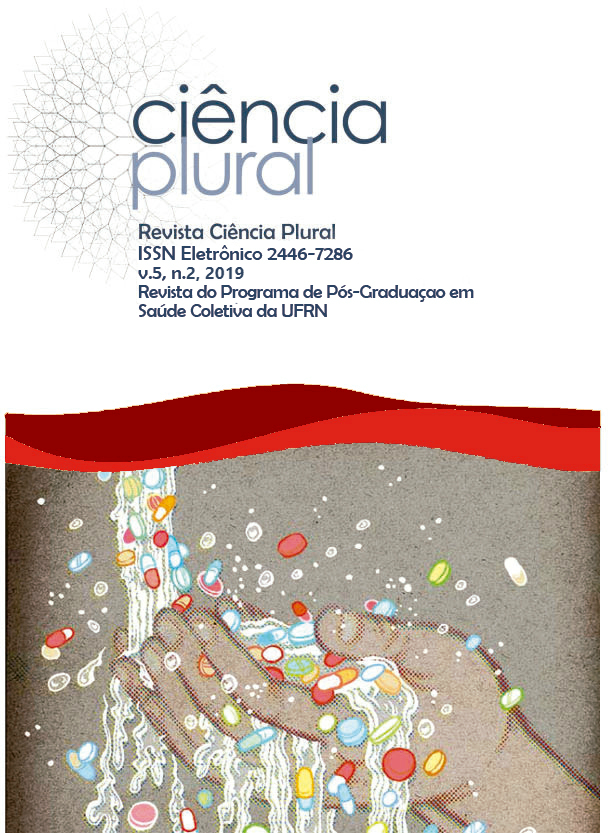THE FOOD AND NUTRITIONAL SAFETY SYSTEM AS A GOVERNANCE MECHANISM IN THE MUNICIPAL AREA IN RIO GRANDE DO NORTE, BRAZIL
DOI:
https://doi.org/10.21680/2446-7286.2019v5n2ID17729Abstract
Introduction: The Food and Nutrition Security System (SISAN in portuguese) represents the institutionalization of public governance to act in Food and Nutrition Security (SAN) in an articulated and intersectoral way, in Brazil. Objective: This study aims to understand the challenges faced by public management at the municipal levels for the implementation of SISAN in Rio Grande do Norte in relation to governance practices. Method: The study consists of an action research, explanatory, qualitative. A data collection and documentary analysis of the actions of the SISAN Universities project in Rio Grande do Norte (RN) was carried out. Represents a cut of a multicenter extension project, it is funded by the Ministry of Social Development (MDS). It involves three federal universities (UFPB, UFRPE, UFRN) developed to strengthen and / or implant the municipal components of SISAN in their states: the Municipal Council of Food and Nutritional Security (COMSEAs) and the Inter-Sectoral Chamber of Food and Nutrition Security (CAISANs). A total of 651 social actors, including public managers and civil society, were consulted from 45 municipalities of the RN, located in 10 different territories. The collection period occurred between 2016 and 2018. Results: There were deficiencies in the public administration of municipalities, with difficulties in establishing goals that contribute to the effective achievement of the objectives of the SAN Policy. There is high turnover and lack of qualification of technicians and managers to make up the legal framework of personnel, this causes the loss of reference and relevant information; this weakens the implementation of SISAN. The lack of knowledge about resources for actions, lack of monitoring and weak mobilizations in support of the operationalization of the plans compromise accountability and social participation.Conclusions: The main challenges encountered in relation to governance practices for the implementation of SAN in the municipal spheres of the NR can foster actions directed to the strategic objectives of the policy, align the interests of society in an organized and consistent manner. Therefore, continuous training is required for municipal managers and engagement in SAN activities; construction of an operational plan that is characteristic of the municipalities that will assist in the implementation of the System, with the definition of performance indicators that will assist in the necessary information and transparency. Thus, the adhesion of the federated entities to the SISAN as a mechanism of SAN management favors good public governance, promoting the effectiveness of actions in favor of citizens.
Downloads
Downloads
Published
How to Cite
Issue
Section
License
À Revista Ciência Plural ficam reservados os direitos autorais referente a todos os artigos publicados.

 Português (Brasil)
Português (Brasil) English
English Español (España)
Español (España)













